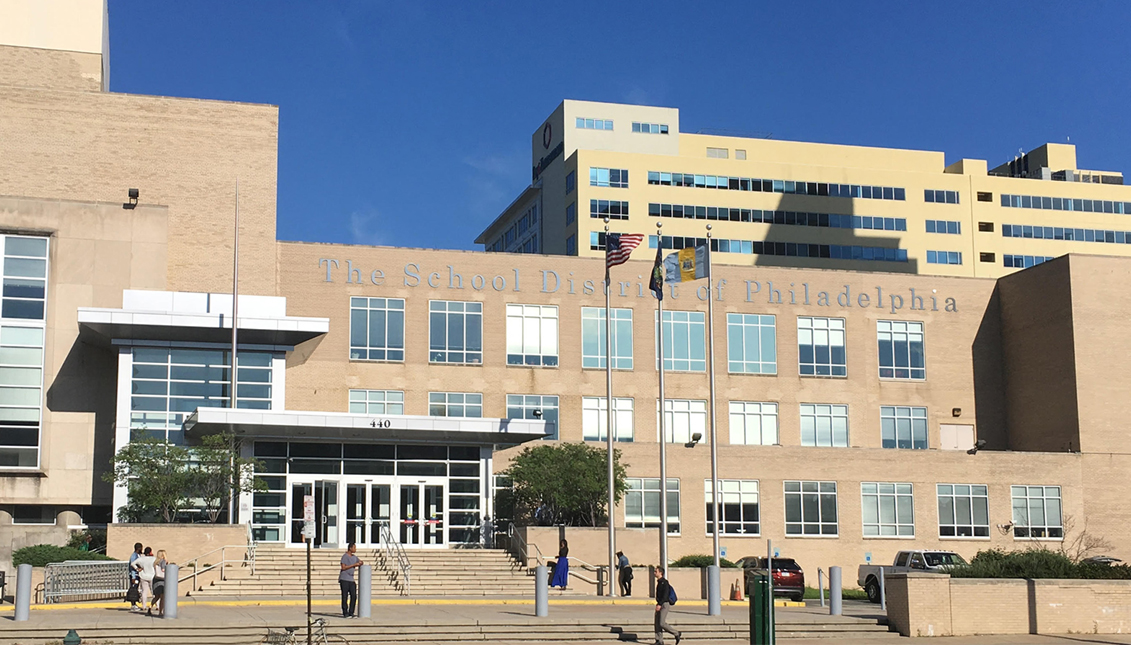
New Juntos survey reveals the persistence of systemic uncertainty around ICE policies in the School District of Philadelphia
Between December of 2020 and January of 2021, the organization interviewed around 350 employees about the district’s ICE policies.
Almost one year ago, on Tuesday, Feb. 11, 2020, ICE agents detained Carmen Lara-Marquez as she dropped her kids off for a day of school at Eliza B. Kirkbride Elementary in South Philadelphia.
The detention of the 30-year-old Honduran national did not last long, but it left lasting scars on Philadelphia’s immigrant community and was a shock for leaders both inside and out of the school district.
Philadelphia Superintendent Dr. William Hite said at the time that the school district would “look into” ICE’s sensitive locations policy, which usually barred it from carrying out law enforcement actions at places like schools and churches
He also reinforced the district’s “commitment to have all schools remain safe havens where families can support their child’s education without risk or concern for their personal freedom.”
Much of that commitment can be found in the 2017 toolkit distributed to its employees.
The school district also provided training sessions for faculty either run by their individual schools, the district itself or by community organizations.
However, new survey results released by Juntos on Feb 11, 2021, a year after the detention of Carmen Lara-Marquez, found that the communication of ICE policies and trainings were shoddy at best to faculty throughout the School District of Philadelphia.
Between December 2020 and January 2021, Juntos interviewed around 350 teachers, administrators, and other school faculty about the district’s ICE policies and existing supports for undocumented families.
The data is also broken down to show the specific job of the faculty member interviewed, what kind of school (public, private, charter or other) they work in, and how long they’ve been employed in the district.
The survey results reveal that only 19% of those interviewed were aware of any measures the district had taken to protect and support undocumented immigrants.
Seventy-five percent said they had no training at all around interacting with ICE in schools. In regards to the toolkit that gets sent out, only 27% responded that they had read it.
In a phone interview following the release of the survey results, Juntos Executive Director Erika Guadalupe Núñez said its goal, in addition to getting more concrete knowledge about communication within the district about ICE, was to keep the discussion of inhumane immigration enforcement at the forefront.
“It’s a year later and this isn’t an old issue or an irrelevant issue, especially under a Biden administration,” said Núñez.
RELATED CONTENT
The new president, while rolling back most of what his predecessor did, is still only returning to Obama-era immigration policies for the time being.
She also said it was a question of will and commitment from the district to do better for its undocumented students.
“Our hope is that in seeing this data and these widespread responses… it shows how systemic the lack of knowledge,” said Núñez. “The district needs to see this data and reckon with its role and responsibility in keeping families safe.”
The survey is a precursor to Juntos’ upcoming launch of its Sanctuary School Campaign on March 1.
In Núñez’s own words, a sanctuary school is one of “true safety.”
“Where there’s strong cultural exchange, where there’s stong parent-family engagement, and it’s also schools that are places of healing.”
Education justice has long been one of the core issues of the organization’s cause, but the COVID-19 pandemic has further exposed great barriers in the case of immigrant families.
Two Núñez mentioned were systemic and linguistic barriers.
“Before the pandemic, [they] have limited parent involvement in youth success, but now have just made it so much more apparent within the last year,” she said.
She also said the school district hasn’t properly reckoned with what happened Lara-Marquez one year ago.











LEAVE A COMMENT: